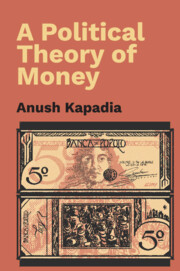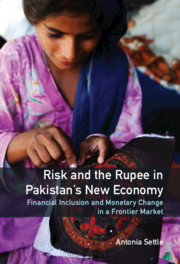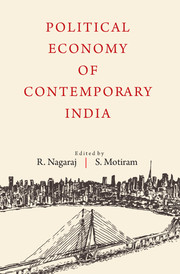A Political Theory of Money
£25.99
- Author: Anush Kapadia, Indian Institute of Technology, Bombay
- Date Published: January 2024
- availability: In stock
- format: Paperback
- isbn: 9781009331463
£
25.99
Paperback
Other available formats:
Hardback, eBook
Looking for an inspection copy?
This title is not currently available on inspection
-
Understanding money's nature as political, institutional, and material answers today's big money questions. Money remains a foundational question of social theory. What is money? Why does something so insubstantial have value? How do money systems make promises function like valuable things? Why are money systems always hierarchical yet variable? The answer, the book argues, is politics. Money is institutionalised social power. Politics generates institutions that differentially lock into the future product of political and economic collectives. Money emerges from the institutionalisation of social antagonisms to encapsulate a collective's productive potential in a flexible, tradable instrument. This takes a system. Money is built in hierarchical layers out of the inherently variable material of politics and at various economic scales. This book outlines these variable processes theoretically and through case studies.
Read more- Combines various theoretical elements to account for the entire range of money's attributes
- Extensively covers all major theories of money
- The balance sheet method enables readers to see through complex structures
Customer reviews
Not yet reviewed
Be the first to review
Review was not posted due to profanity
×Product details
- Date Published: January 2024
- format: Paperback
- isbn: 9781009331463
- length: 320 pages
- dimensions: 229 x 152 x 18 mm
- weight: 0.36kg
- availability: In stock
Table of Contents
Acknowledgements
Part I. 1. Money anchored to the future
2. The money fetish: making promises into things
3. Bending not breaking: monetary sovereignty and the survival constraint
4. Mystical kernel within the rational shell: the Banking School's residual Chartalism
5. Between currency and credit: Mehrling's money view
6. There is no such thing as fiat money
7. Coherence: why money is not value
Part II. 8. National Money vs Shadow Banking: contradictions of a public-private credit system
9. A world without world money
10. Proof of institutions: cryptocurrencies as digital fiat money
11. Europe and democratic funding
12. Democratic sovereignty makes money
References
Index.
Sorry, this resource is locked
Please register or sign in to request access. If you are having problems accessing these resources please email [email protected]
Register Sign in» Proceed
You are now leaving the Cambridge University Press website. Your eBook purchase and download will be completed by our partner www.ebooks.com. Please see the permission section of the www.ebooks.com catalogue page for details of the print & copy limits on our eBooks.
Continue ×Are you sure you want to delete your account?
This cannot be undone.
Thank you for your feedback which will help us improve our service.
If you requested a response, we will make sure to get back to you shortly.
×






